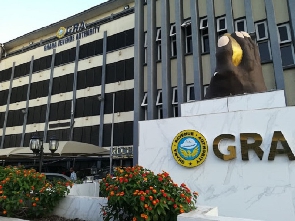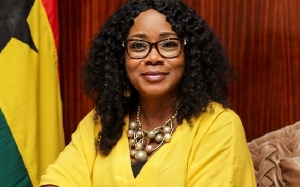By Kwame Okoampa-Ahoofe, Jr., Ph.D.
Garden City, New York
August 30, 2014
E-mail: okoampaahoofe@optimum.net
In the wake of the Akufo-Addo-led New Patriotic Party (NPP) Election 2012 Presidential Petition decision by the Supreme Court of Ghana, a lot of eye-opening flaws about the cultural protocol of the Wood Court became public knowledge in a way that might well not have occurred, had massive pressure not been brought on the court to allow media cameras and live coverage of the proceedings. And for this eye-opener, Ghanaians and the rest of continental Africa have Akufo-Addo to thank.
Not surprisingly, such judicial transparency is likely to go down the memory lane of history as one of the most significant contributions of Ghana's former Foreign Minister and before his latter post, Attorney-General and Minister of Justice. We shall find time to address some of the flagrant violations of electoral protocol by the Afari-Gyan-chaired Ghana Electoral Commission in due course, and as becomes relevant and appropriate down the pike. For now, the spotlight is on the patently unhealthy politicization of the Ghana Supreme Court by the undue stacking of the bench with presidential favorites. This judicial dilemma was especially poignant in the 16-year period between 1992 and 2008, in the respective administrations of Presidents Jerry John Rawlings and John Agyekum-Kufuor.
But, of course, it is former President Rawlings who may be indisputably adjudged to be the more guilty of having virtually and irreparably compromised the credibility and integrity of the Supreme Court of Ghana. And on the latter score, the direct and unmistakable reference is to the PNDC-orchestrated brutal assassination of the three Accra High Court judges. Sometimes, I wonder how Mr. Rawlings is able to muster the chutzpah to appeal to the judicial system to intercede on his behalf, such as vis-a-vis the ongoing litigation between Ghana's longest-reigning strongman and Dr. Danso-Boafo, Ghana's former High Commissioner to Britain, over the scheduled launching of a book authored by the latter on the essentially extortionate regime of the former's.
Anyway, the major flaw in the constitution of Ghana's Supreme Court, as eloquently pointed out by constitutional law expert H. Kwasi Prempeh, is that the Supreme Court has no limit on the number of judges that may be appointed to sit on the highest bench of the land (See "Ghana's SC Review Process 'Problematic' - Prempeh" Starrfmonline.com / Ghanaweb.com 8/30/14). What makes this problematic state of affairs even more problematic, to speak less about the downright complicated, is the fact that the court routinely sits with less than the entire number of its bench members. That number, according to Prof. Prempeh, ranges from 5 to 9.
However, when it comes to reviewing a decision rendered earlier on by a fraction of its membership, the known practice has been for the Chief Justice to constitute a judicial panel whose membership is often higher in membership than that which initially rendered the decision/verdict being so reviewed. This, according to Prof. Prempeh, gives room for maneuver on the part of the Chief Justice, in the form of adding a couple of members to the judicial-review panel whose known ideological leanings may not necessarily guarantee an objective outcome. Naturally, according to Prof. Prempeh, when such a situation occurs, the court unwisely opens itself up to public charges of bias and prejudice, which clearly contradicts the constitutionally mandated mission of the highest court of the land.
Prof. Prempeh argues eloquently and impeccably that in order to ensure the unquestionable fairness of decisions and judgments rendered by the Court, as constitutionally required of the Court, a specific limit ought to be constitutionally imposed vis-a-vis the number of judges who may be appointed to sit on the Supreme Bench, as prevails in countries as culturally and politically diverse as the United States of America and Kenya. But even more significantly, Prof. Prempeh would rather have the full panoply of the membership of the Court to both preside over fresh cases brought before it, as well as constitute itself into a review panel for the same cases.
Now, who can argue with such commonsensical and professionally high-minded approach to Supreme Justice?
_____________________________________________________________
Opinions of Wednesday, 24 September 2014
Columnist: Okoampa-Ahoofe, Kwame














